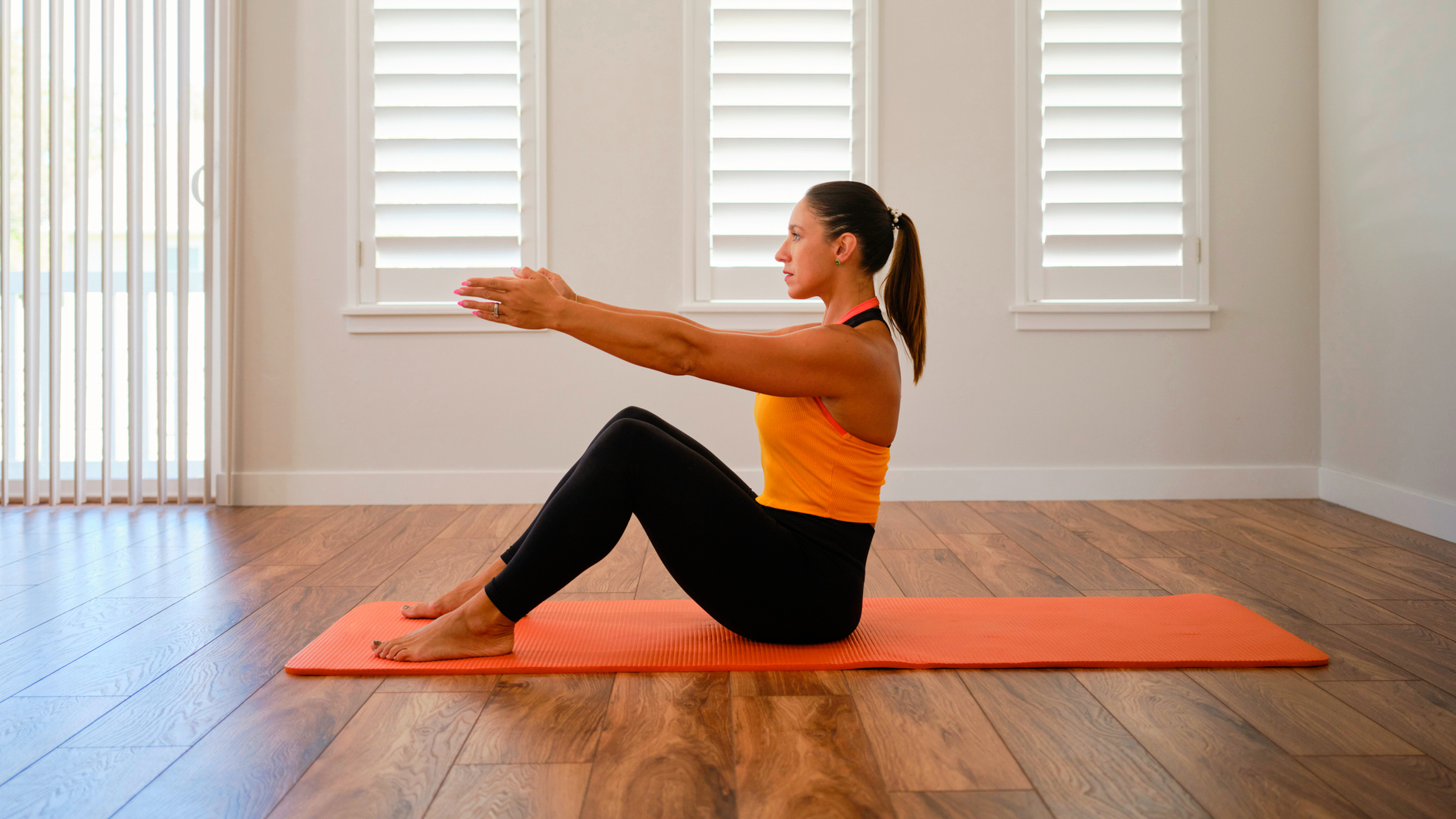
Struggling with neck strain every time you do a core workout? Sarah Aspinall, RAD ballet teacher and founder of Breaking Ballet, might have the solution. Her four-move abs routine focuses on strengthening your core, while improving posture and alignment, all without causing discomfort in your neck.
Neck strain during an abs workout can happen for many reasons, from a poor warm-up to tech neck, but the most common culprit is improper form and technique.
"Relying on the neck muscles instead of engaging the core can lead to neck strain," says Aspinall. "That's why these exercises are designed to keep your head and neck in a neutral position, ensuring that the cervical spine remains aligned with the rest of your body."
Aspinall's ballet-inspired workout is low impact and allows your deep core muscles to do the work, rather than overusing your neck or shoulders. "The movements are slow and controlled, allowing you to build strength without rushing through exercises that could compromise your form," she says.
Don't be put off if you've never tried a ballet-inspired routine before, there’s no dancing required. "These workouts offer a unique blend of elegance, strength, and precision," says Aspinall. "This mat-based routine not only tones your abs but also prioritizes safety and proper alignment."
How to do this ballet-inspired core workout
While this is a follow-along video, here's more information on each exercise.
1. Seated roll back and pulse
Targets: Abdominals, hip flexors and arms
"This builds core strength and endurance while improving control and stability. The combination of arms enhances coordination, core stability and upper-body strength while adding a dynamic ballet-inspired element," says Aspinall.
How to do it:
- Sit with your knees bent and feet flat on the floor, hip-width apart.
- Lightly hold the backs of your thighs or extend your arms forward, parallel to the floor.
- Engage your core, relax your shoulders and inhale, then exhale as you lower your torso and curl your upper body into a C-shape.
- Hold this position and move your torso up and down slightly.
2. Seated rotation side to side
Targets: Obliques, shoulders, arms and core
"This improves core rotation strength, enhances coordination and adds a dynamic, flowing quality to the movement. When the arms trace a high figure of eight overhead, this increases core engagement, strengthens the upper body, and promotes flexibility in the shoulders and back,” says Aspinall.
How to do it:
- Sit with your knees bent and feet flat on the floor, hip-width apart.
- Extend your arms forward, parallel to the floor.
- Engage your core, relax your shoulders and inhale, then exhale as you lower your torso and curl your upper body into a C-shape.
- Rotate your torso and arms to one side, then the other. Lift and lower your arms to draw a figure of eight as you move.
3. Seated rotation over raised leg
Targets: Lower abs, obliques, hip flexors, and quadriceps
"This improves lower-abdominal strength, hip flexibility and rotational control, while increasing coordination between the upper and lower body," says Aspinall.
How to do it:
- Sit with both legs extended in front of you.
- Engage your core, relax your shoulders and inhale, then exhale as you lower your torso and curl your upper body into a C-shape.
- Lift your right leg.
- Rotate your torso and arms to the right, reaching over the lifted leg.
- Return to the center and repeat.
- Perform on both sides.
4. Seated bent leg raise and rotation
Targets: Lower abs, obliques, hip flexors, thighs and core stabilizers
"This strengthens the core, builds dynamic control in the lower body, and enhances balance and coordination," says Aspinall.
How to do it:
- Sit with both legs extended in front of you.
- Engage your core, relax your shoulders and inhale, then exhale as you lower your torso and curl your upper body into a C-shape.
- Lift your right leg.
- Rotate your torso to the right side and slightly forward, while bending your right knee and bringing it toward your torso.
- Straighten your right leg and return your torso to the center.
- Repeat as required, then perform on the other side.







